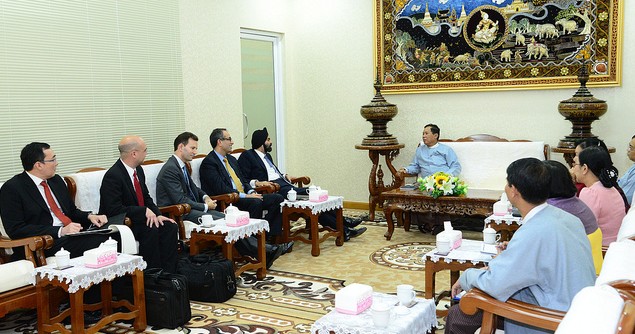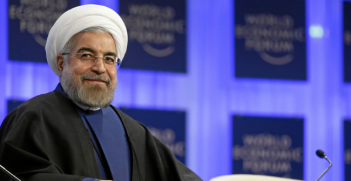Myanmar (partially) Opens the Door to Foreign Banks

On 30 September the Central Bank of Myanmar (CBM) announced the names of the nine foreign banks that are to be awarded licences to operate in the country. It was a keenly awaited decision that, as with the telecommunications licences last year, was conducted via a generally well-regarded selection process presided over by a German consultancy firm, Roland Berger.
The winners list provides few surprises. The nine selected include ANZ from Australia; Bangkok Bank from Thailand; Bank of Tokyo-Mitsubishi UFJ, Mizuho Bank and Sumitomo Mitsui Banking Corporation from Japan; Industrial and Commercial Bank of China; Maybank from Malaysia; and the Overseas Chinese Banking Corporation and United Overseas Bank from Singapore.All three of Japan’s monster banks received licences. This reflects not only the size and increasing regional ambitions of these institutions, but also own substantial investment of ‘Japan Inc.’ in its Myanmar play. The two Singaporean banks were likewise expected, though the missing DBS brand raised some eyebrows. No one could have doubted that at least one bank from Thailand, Malaysia and China would be included (Thailand and China are Myanmar’s largest trading and investment partners). Australia’s ANZ, as expected, took the single Western bank slot. Standard Chartered’s last minute decision not to submit an application made ANZ a hot favourite, but that should not overshadow the substantial commitment the Bank has made to its Myanmar venture, or to the skill of its team on the ground.
Some commentators have expressed surprise at the lack of any bank from either South Korea or Taiwan. But these omissions are not really that surprising. South Korea and Taiwan are industrial and export powerhouses of course, but their banks are mostly undistinguished, and punch well below the economic weight of their home countries. That Vietnam’s Bank for the Industrial Development of Vietnam (BIDV) missed out is more notable, given the increasing economic ties between Myanmar and Vietnam, as well as the BIDV’s own funding support to Myanmar’s Small and Medium Industrial Development Bank, SMIDB. But it was the smallest of all the bidding institutions, and comes from a financial system neck-deep in its own troubles.
So what does the granting of these foreign bank licences represent?
At one level: progress. Foreign banks were expelled from Myanmar in 1962, at the outset of the coup that ushered in the ‘Burma road to socialism’. Since then, foreign banks have often been assigned the part of convenient pantomime villain. On the other hand, the substantial restrictions on what business the new entrants are permitted to do also functions as something of a motif for the limitations of the country’s current reform process.
Apparently foreign banks will be restricted to providing loans only to foreign entities in Myanmar, only in foreign currency and only after putting down US$75 million in capital (upon which it is difficult to envision much return, at least in the short-run). The whole process could be seen as something of a missed opportunity. Myanmar lacks many critical components for genuinely transformational growth and development, but the lack of capital is right at the top of the list.
But matters may not be so straightforward. According to some reports there may just be some wriggle room in the allowable activities of foreign banks. The vice chairman of the CBM, Winston Set Aung, made it known that Myanmar’s binding regulations determining maximum lending rates and minimum deposit rates did not apply to foreign banks’ foreign currency loans to foreign borrowers. Meanwhile, the idea that ‘syndicated loans’ might provide a vehicle for more direct exposure of foreign banks to local Burmese enterprise (as opposed to the more indirect route of foreign bank funds provision to local banks) has also been canvassed.
Overall, the entry of foreign banks into Myanmar is a good thing. The ideological lens through which foreign finance in Myanmar has been historically viewed remains a factor to be aware of, but it should not preclude the opening of the country to the one set of institutions that offer a chance for ‘unconnected’ Burmese firms beyond the usual crony cohort to access finance. Advocating for foreign banks will never be an especially popular thing but, for Myanmar’s future, it might just be a necessary one.
Sean Turnell is Associate Professor at the Department of Economics, Macquarie University.
This article was originally published by the East Asia Forum. It is republished with permission.





